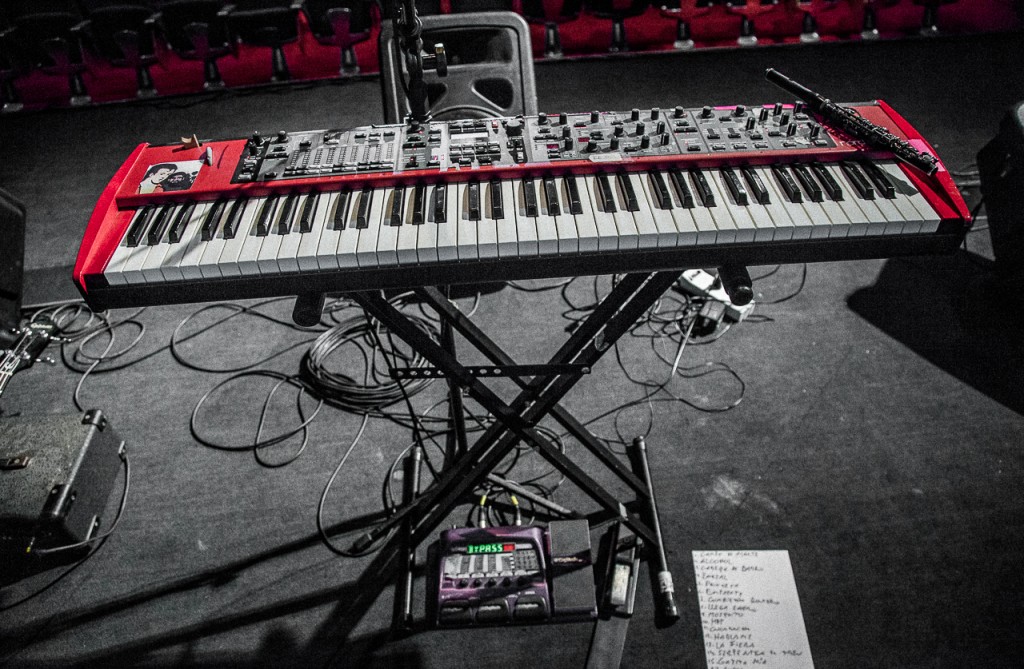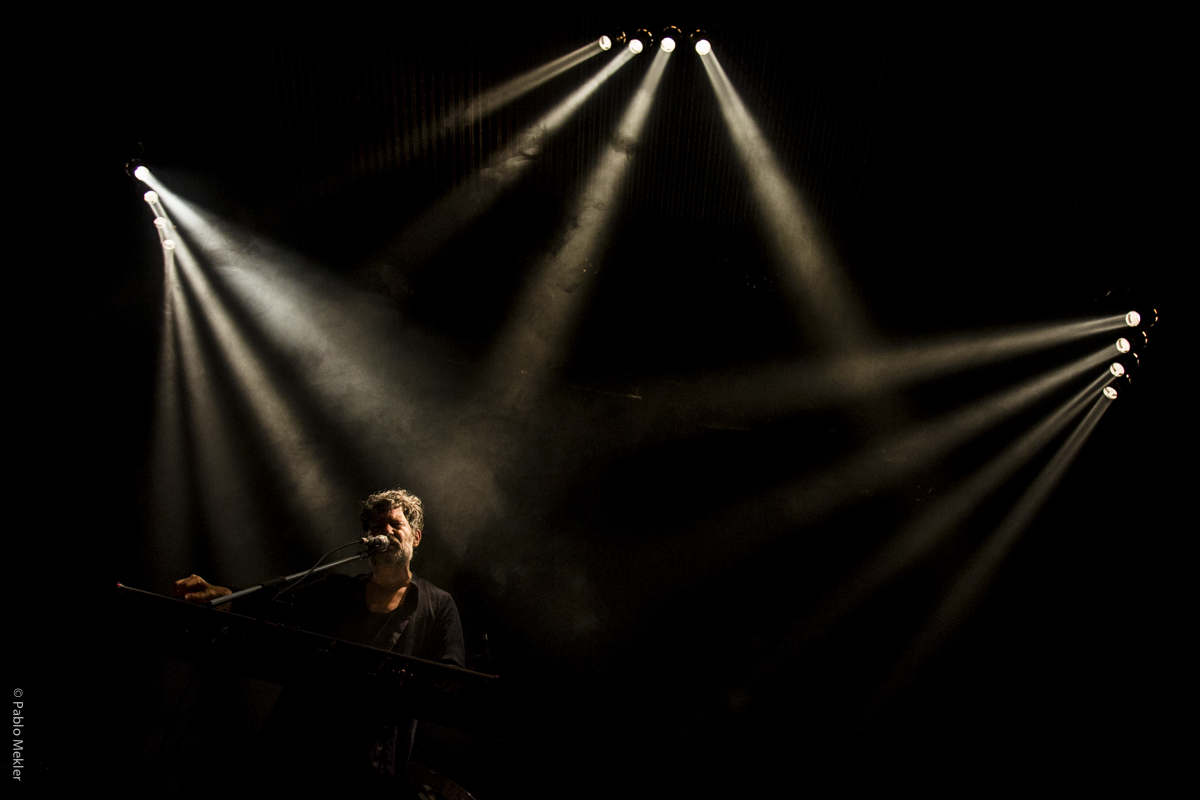HOLA SEÑOR KRYGIER

Although he is an artist strongly associated to the history of Argentinian rock from the second half of the 80s, Axel Krygier is one of the most unique and out-of-the-pattern musicians of his country. He was even praised for his singularity by the leader of Sumo, a great icon of local underground, a compliment which became a stigma.
Nonetheless, from that moment, when he was just 18, to the release of his first album Échale semilla! (1999) twelve years passed, a period in which the singer, composer, producer and multi-instrumentalist devoted himself to outlining a musical identity driven by the impulse of polyrhythm.
It is not fortuitous that Latin popular music is the first distinctive characteristic evidenced in Axel’s work, which goes along with him since folklore appeared in his adolescence. When he discovered the post-punk -the artist born in Buenos Aires in 1969- instead of turning his back on tradition, he set the basis of a song format struggling between buenos aires contemporaneity and Caribbean histrionics.
In order to consolidate this esthetic and sound project and after his participation as saxophonist in La Portuaria, he didn’t only resorted to a solo career, but also took it forward with the keyboards as its main instrument, which allowed him to improve as a producer, later song-writer and front man.


A long time before bedroom pop appeared, Axel built up a home studio where, with a multi-track recorder, he gave birth to musical Frankesteins that opened doors and minds, achieving nowadays a sound in which Dominican bachata coexists with surf music, as drum n’bass with klezmer, without even being perceived as weird.
This musician, whose inventiveness and talent were recognized and required by Latin rock stars such as Soda Stereo, became almost unintentionally, driven by provocation, impertinence, hustle and bustle and joy, a redeemer of class equality by joining the styles that would divide the Latin American society, into high and low culture.
As introduction to the political and social events that hit Latin America in the 2000s, Axel’s first album help predict the change in music order of the region in the following years. The critics and journalists proclaimed him “best new artist”, while a new generation of musicians and public celebrated his late debut as soloist. A great occasion because he was invited by Zizek, the digital cumbia and electronic folk label, to be part of their parties. Although for the collective this meant the incorporation of an experienced and renowned figure, for Krygier it was the opportunity to have his artistic aims contained by a scene and to start refining his live show.


After consolidating his position in the international circuit by participating in many festivals, Axel, author of soundtracks and music for dance and theater, released Pesebre (2010), his fourth studio album. For such album, he set up a band with which he strengthened his documentary poetry and humor, as well as conceived musical pleasure beyond adrenaline. And that was precisely what he captured in Hombre de Piedra, his new album, in which he initiated a journey which aims at modifying states of mind: his and yours.
